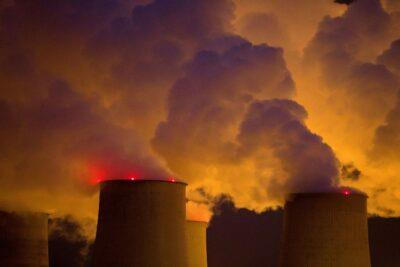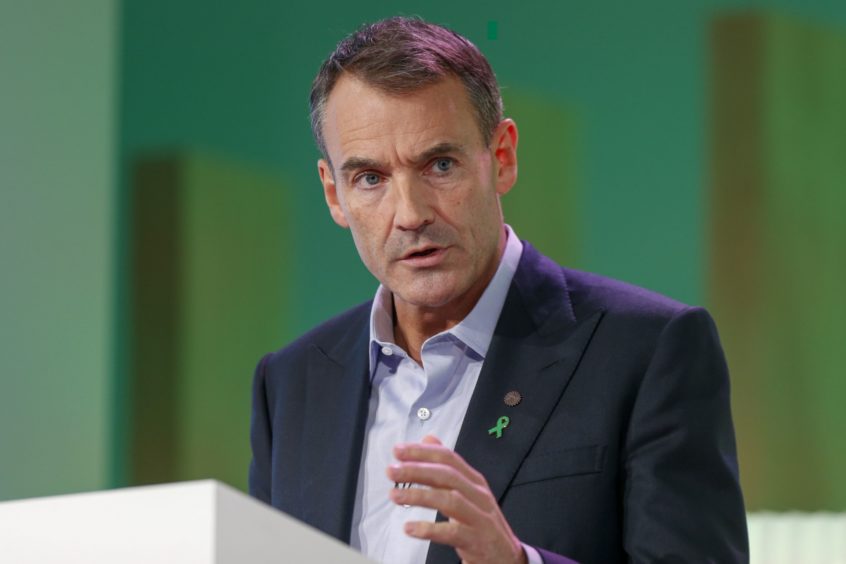
BP’s chief executive has raised concerns that the dramatic fall in carbon emissions seen last year may be “short lived”.
As Covid-19 plunged much of the world into lockdown in 2020, global emissions dropped by about 6.3%, a change that Bernard Looney said is “unmatched in modern peacetime”.
But despite the unprecedented fall, the largest since the end of World War 2, similar decreases will be needed every year for the next 30 years in order to meet the Paris Agreement.
The challenge therefore is to achieve “sustained, comparable” reductions in emissions without “massive disruption” to people’s everyday lives, Mr Looney said.
Since the signing of the Paris Agreement, which aims to limit global warming to below 2°, there has been a “huge increase” in efforts to decarbonise.
Currently about 70% of the world’s emissions are covered by net zero targets and pledges.
But Mr Looney said the increased focus on cutting emissions hasn’t translated into a “decisive reduction”.
In order to bring about the “necessary change, he stressed the need for consumers, producers, companies and governments to work together.
Setting out his ambitions for the COP26 climate conference in Glasgow, Mr Looney described the flagship event as the “most important” meeting in years.
He also expressed his hope that the Glasgow Agreement will be spoken about with the “same importance and reverence” as Paris in years to come.
Mr Looney’s comments were published in the opening to BP’s 70th annual statistical review of world energy.
The data captures “one of the most turbulent years the world has ever seen”, and sets out how the pandemic could influence future energy trends.
With Covid forcing millions to stay inside for months on end, primary energy consumption in 2020 fell by 4.5% – the largest annual decline since 1945.
The decrease was primarily driven by oil, which accounted for almost three quarters of the net decline.
By country, the US, India and Russia saw the largest declines in energy consumption.
China saw the biggest increase – 2.1% – and was one of only a handful of countries to buck the trend.
There were rosy signs for renewables however, with wind, solar and hydroelectricity generation all growing despite the fall in overall energy demand.
Wind and solar capacity increased by a huge 238 gigawatts (GW) in 2020 – 50% larger than at any time in history – with China leading the pack.
In other positive news for the environment, coal consumption dropped by 4.2%, spearheaded by declines in the US.
Spencer Dale, BP’s chief economist, said renewables pushing coal out of the market is “exactly what the world needs to see” in the coming years.
On whether net zero can be reached without disrupting billions of people, he said: “There’s two things that happened over the last year which give us hope.
“One is that there has been a very significant rise in ambition, both at a country level and a company level – that’s encouraging.
“And perhaps the single most important thing is renewable energy – we see that growing strongly.
“Over the last five years, renewable energy has expanded by around 18% per annum on average. That’s pretty much consistent with the rate of growth we to see in the next decade – it just needs to be maintained.”
Mr Dale added: “The importance of the past 70 years pales into insignificance as we consider the challenges facing the energy system over the next 10, 20, 30 years.
“To reach net zero, the level of ambition shown by countries and companies needs to translate into significant, sustained falls in emissions. Everyone, from business to governments to consumers, has a role to play in delivering that.”


